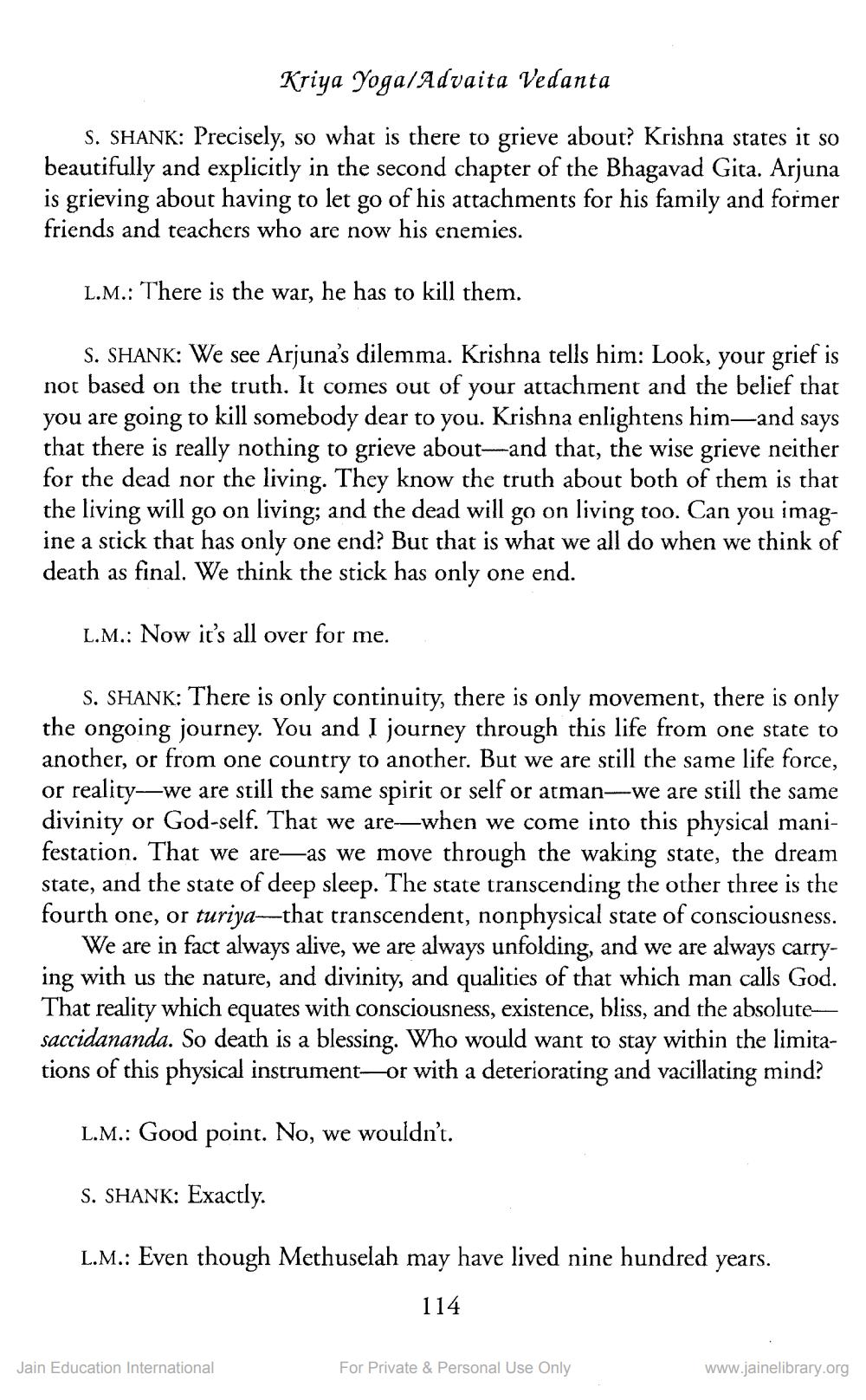________________
Kriya Yoga/Advaita Vedanta
S. SHANK: Precisely, so what is there to grieve about? Krishna states it so beautifully and explicitly in the second chapter of the Bhagavad Gita. Arjuna is grieving about having to let go of his attachments for his family and former friends and teachers who are now his enemies.
L.M.: There is the war, he has to kill them.
S. SHANK: We see Arjuna's dilemma. Krishna tells him: Look, your grief is not based on the truth. It comes out of your attachment and the belief that you are going to kill somebody dear to you. Krishna enlightens him—and says that there is really nothing to grieve about-and that, the wise grieve neither for the dead nor the living. They know the truth about both of them is that the living will go on living; and the dead will go on living too. Can you imagine a stick that has only one end? But that is what we all do when we think of death as final. We think the stick has only one end.
L.M.: Now it's all over for me.
S. SHANK: There is only continuity, there is only movement, there is only the ongoing journey. You and I journey through this life from one state to another, or from one country to another. But we are still the same life force, or reality—we are still the same spirit or self or arman—we are still the same divinity or God-self. That we are—when we come into this physical manifestation. That we are—as we move through the waking state, the dream state, and the state of deep sleep. The state transcending the other three is the fourth one, or turiya—that transcendent, nonphysical state of consciousness.
We are in fact always alive, we are always unfolding, and we are always carrying with us the nature, and divinity, and qualities of that which man calls God. That reality which equates with consciousness, existence, bliss, and the absolute saccidananda. So death is a blessing. Who would want to stay within the limitations of this physical instrument—or with a deteriorating and vacillating mind?
L.M.: Good point. No, we wouldn't.
S. SHANK: Exactly.
L.M.: Even though Methuselah may have lived nine hundred years.
114
Jain Education International
For Private & Personal Use Only
www.jainelibrary.org




